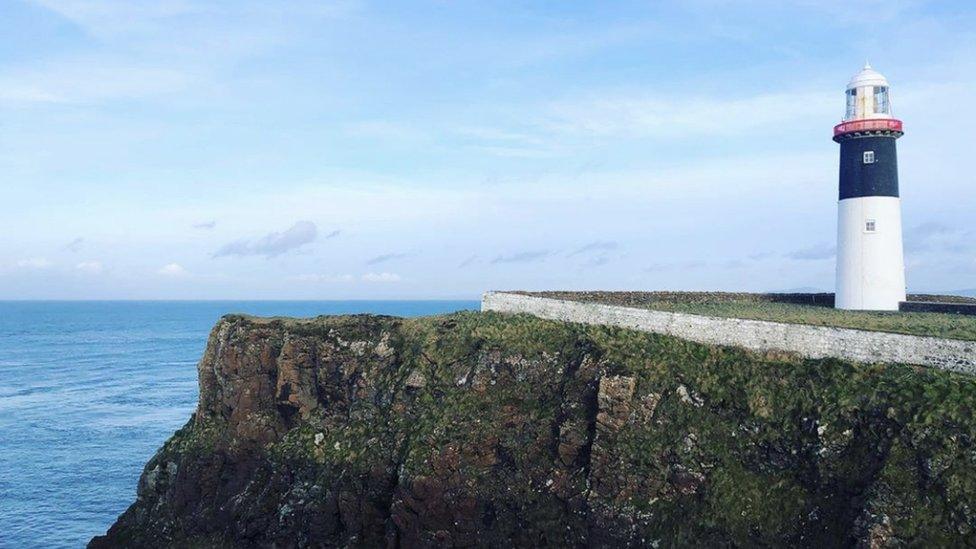Climate change: Rathlin Island gets £4.6m for Green Transition project
- Published

Rathlin Island is aiming to be carbon neutral by 2030
A Rathlin Island project has been granted £4.625 million over the next two years to innovate on waste management and other environmental challenges.
The funding comes from the Arts and Humanities Research Council.
The project, called Future Island-Island, will be one of the UK's four new Green Transition Ecosystems (GTEs).
It will look at sustainable resource management and protecting the island from any negative impacts of tourism.
The project aims to bolster awareness and improve public engagement around waste management. It will be led by Ulster University in partnership with Queen's University Belfast.
It will use Rathlin Island as an innovation test centre. Its six pillars include plastic pollution, protecting natural habitats and waste management.
The work might include repurposing waste plastics into materials for 3D printing.
Rathlin Island has a net zero target of 2030, two decades ahead of the Northern Ireland-wide target of 2050.
GTEs aim to translate design-led research into real-world benefits, concentrating on the challenges posed by climate change.
They are part of the £25m Future Observatory: Design the Green Transition programme, funded by the Arts and Humanities Research Council with support from the UK Government, and delivered in partnership with the Design Museum.
The Glasgow School of Art and University of the Arts London will provide expertise to the locally-led consortium.
David Quinney Mee of the Rathlin Development Community Association said the partnership with the project was "of value beyond current measure".
He added that the island could become a "best practice model" for other places across the UK and internationally.
As well as looking at waste management and sustainable tourism on the island, the Future Island-Island project will work with the RSPB to "significantly" expand the LIFE Raft scheme.
The project will work with two Belfast Regional City Deals, the Ulster University-led Studio Ulster,, external and Queen's University Belfast-led Advanced Manufacturing Innovation Centre (AMIC)., external
'Significant opportunity'
The funding announcement was welcomed by Professor Justin Magee, Principal Investigator and Research Director for Art and Design at Ulster University.
"This is a significant opportunity for the design community to demonstrate inventive propositions to stimulate change around key global challenges."
And he said building the project around a small island off the coast of another small island would "exemplify how these small rural islands, under the correct conditions, can deliver high level innovation to drive prosperity and enable change."
Co-investigator Professor Greg Keefe from Queen's School of Natural and Built Environment said the "exciting and innovative" project has the potential to improve how people live, both in Northern Ireland and further afield.
Related topics
- Published11 July 2021

- Published18 May 2021

- Published5 July 2023
